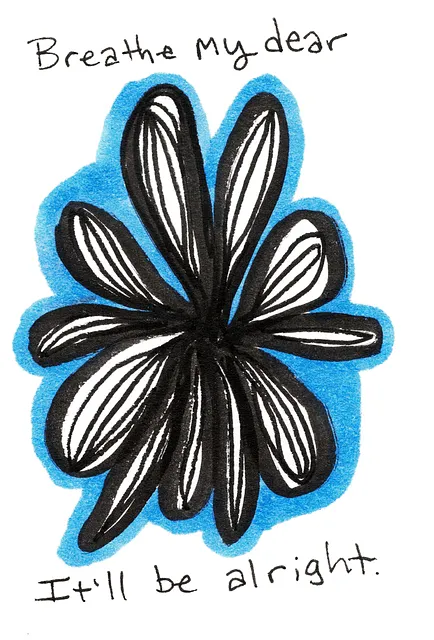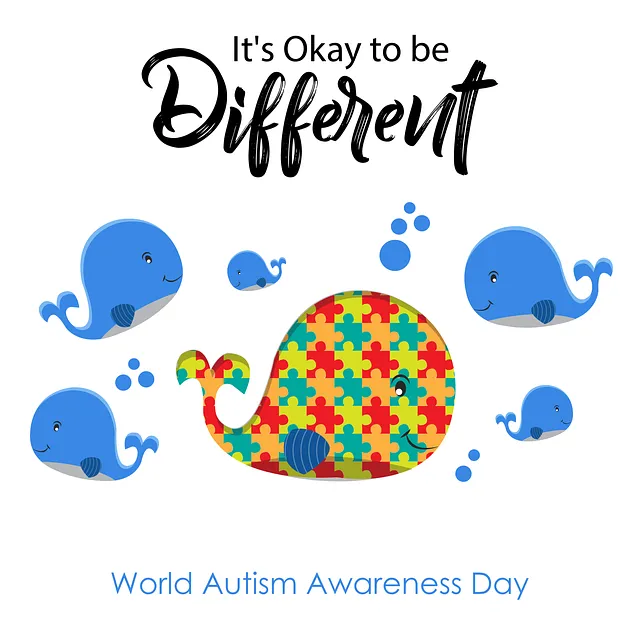CBT anxiety therapy in Gilbert, AZ and Mesa effectively manages Generalized Anxiety Disorder (GAD), Panic Disorder, and Social Anxiety Disorder through addressing unhelpful thought patterns and behaviors. This evidence-based approach equips individuals with coping strategies, skills to confront fears, and long-lasting tools to improve quality of life. Local therapists combine CBT with mindfulness or counseling for a holistic treatment experience tailored to complex anxiety disorders. Researching experienced specialists focused on CBT techniques enhances therapy effectiveness.
Anxiety disorders affect millions, but there’s hope in Gilbert, AZ. This comprehensive guide explores effective strategies for managing anxiety through Cognitive-Behavioral Therapy (CBT), a proven approach that targets negative thought patterns. We’ll delve into common types and symptoms of anxiety, how CBT works, practical techniques for daily life, and its integration with other therapies. Learn tips for finding the right therapist to embark on your journey toward tranquility. Discover CBT anxiety therapy in Gilbert, AZ – transform your mental health today.
- Understanding Anxiety Disorders: Common Types and Symptoms
- Cognitive-Behavioral Therapy (CBT): Unlocking Effective Strategies
- How CBT Works: Addressing Negative Thought Patterns
- Practical CBT Techniques for Everyday Life
- Integrating CBT with Other Therapeutic Approaches
- Finding the Right Therapist: Tips for Your Journey
Understanding Anxiety Disorders: Common Types and Symptoms

Anxiety disorders are a common mental health concern, affecting millions worldwide. Understanding these conditions is crucial in seeking effective treatments, like CBT anxiety therapy, available in Gilbert and Mesa. The most prevalent types include Generalized Anxiety Disorder (GAD), characterized by excessive and uncontrollable worry about everyday matters; Panic Disorder, marked by sudden and recurrent panic attacks; and Social Anxiety Disorder, causing intense fear in social situations. Symptoms can range from persistent worries, restlessness, insomnia, to physical manifestations like increased heart rate and breathlessness. Many individuals also experience avoidance behaviors, making it essential to address these disorders through specialized therapy.
CBT is a highly effective approach for managing anxiety disorders by helping patients identify and change unhelpful thought patterns and behaviors. It focuses on the connection between thoughts, feelings, and actions, teaching clients coping strategies to manage symptoms. This evidence-based method has shown remarkable results in various studies, making it a recommended treatment option for both GAD and panic disorders. With the right support, individuals can learn to confront their fears and develop long-lasting skills to overcome anxiety, improving their overall quality of life through counseling for anxiety in Gilbert or Mesa.
Cognitive-Behavioral Therapy (CBT): Unlocking Effective Strategies

Cognitive-Behavioral Therapy (CBT) is a highly effective strategy for managing anxiety disorders. By focusing on identifying and modifying negative thought patterns and behaviors, CBT empowers individuals to confront and overcome their fears. This form of therapy encourages clients to challenge distorted thinking and replace it with more realistic, balanced perspectives. Through structured sessions, patients learn coping mechanisms tailored to their specific needs, enabling them to effectively manage symptoms in their daily lives.
In the context of anxiety disorders, CBT helps individuals understand that their thoughts, feelings, and behaviors are interconnected. By changing the way they think and act, clients can reduce anxious symptoms and improve their overall well-being. This evidence-based approach has been shown to be particularly effective for those seeking mental health counseling in Gilbert, AZ or Mesa, offering a practical and long-lasting solution for anxiety management.
How CBT Works: Addressing Negative Thought Patterns

Cognitive-behavioral therapy (CBT) is a highly effective approach to managing anxiety disorders. At its core, CBT focuses on addressing negative thought patterns and behaviors that contribute to anxiety. This form of therapy helps individuals identify distorted thinking, such as catastrophizing or all-or-nothing reasoning, which can trigger or exacerbate anxiety symptoms. By challenging and replacing these unhelpful thoughts with more realistic and balanced perspectives, CBT empowers people to develop healthier coping mechanisms.
Through counseling for anxiety in Gilbert, AZ, or with a Chandler anxiety therapist, individuals learn to recognize when their thought patterns are becoming distorted and practice techniques to interrupt and reframe those thoughts. This process enables them to engage in a more meaningful and positive dialogue with themselves, leading to reduced anxiety and improved overall well-being. The ultimate goal is to help clients develop the skills needed to navigate life’s challenges without being overwhelmed by anxiety.
Practical CBT Techniques for Everyday Life

CBT offers a range of practical techniques that individuals can use to manage their anxiety disorders in everyday life. One key strategy is cognitive restructuring, which involves identifying and challenging negative thought patterns and replacing them with more realistic and positive ones. This process helps individuals gain a healthier perspective on situations that trigger anxiety, reducing the intensity of their responses. For instance, if someone experiences social anxiety, CBT might encourage them to reframe self-critical thoughts like “I’ll make a fool of myself” to more balanced statements such as “I may feel nervous, but I can handle this.”
Another effective CBT technique is behavioral activation, which focuses on encouraging individuals to engage in activities they enjoy or find meaningful, even when experiencing anxiety. By actively participating in enjoyable activities, individuals can distract themselves from anxious thoughts and create a sense of accomplishment. This approach is especially beneficial for those with social anxiety, as it can help build confidence in social settings. A Chandler anxiety therapist might guide clients through these techniques, enabling them to effectively manage their symptoms and improve their overall well-being, making therapy for anxiety in Gilbert more accessible and impactful.
Integrating CBT with Other Therapeutic Approaches

In addition to stand-alone CBT sessions, many effective therapy programs in Gilbert, AZ integrate cognitive-behavioral techniques with other therapeutic approaches to provide comprehensive treatment for anxiety disorders. This integration acknowledges that anxiety is complex and often has multiple contributing factors. For instance, a skilled therapist might combine CBT with mindfulness practices or meditation training to help clients develop healthier coping mechanisms and emotional regulation skills.
This blended approach can also include elements of mental health counseling, where clients explore underlying issues, such as past traumas or relationship challenges, that may be fueling their anxiety. A Chandler anxiety therapist, for example, might utilize a combination of CBT techniques to address current triggers while offering mental health counseling to delve into the root causes and provide lasting solutions. Such multifaceted strategies ensure tailored support for each individual’s unique needs.
Finding the Right Therapist: Tips for Your Journey

Finding the right therapist is a crucial step in your journey to managing anxiety disorders. It’s essential to look for someone who specializes in cognitive-behavioral therapy (CBT), as this evidence-based approach has proven effective for various anxiety conditions. Start by researching local therapists in Gilbert, AZ, or exploring online platforms that cater to your specific needs. Many people find success with specialists focused on CBT techniques tailored to address anxiety symptoms.
When considering a therapist, look for qualifications, experience, and a warm, supportive environment. Reviews from previous clients can provide valuable insights. You might also consider a therapist who has treated individuals with similar anxiety challenges as you. This personal connection and understanding can significantly impact your therapy experience, making it more comfortable and effective. Remember, finding the right fit is key to a successful therapeutic journey towards managing and overcoming anxiety disorders.
